Russian took the bastion of unapproachable German spirit for three days
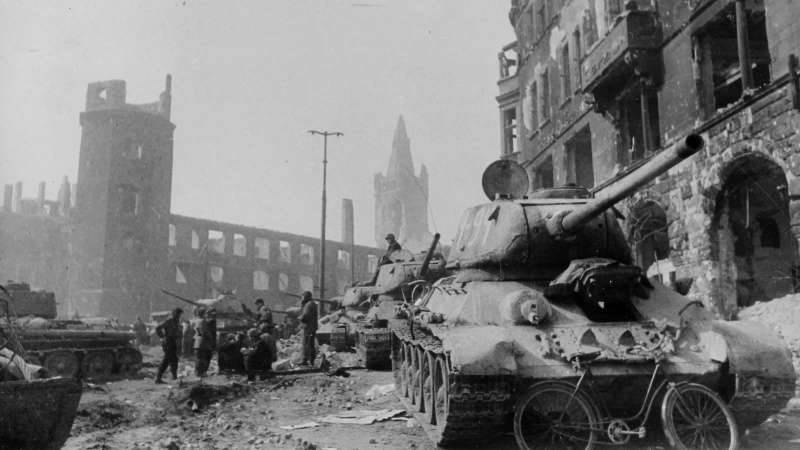
How many of them! Fate, fate, fate. How little we know about them, about ordinary soldiers of war who forged victory. Thousands of articles have been written about military leaders, but who will remember them, the unknown, whose names only the clerk adds to the list of the composition of the unit, or they appear in a funeral mournful line. That's the whole life.
What do young people know about war? Specifically, about the most terrible that claimed, by the roughest calculations, the lives of more than 20 million people. About the one that ended 71 a year ago with the Great Victory of our people over the horror of the “brown plague”. Alas, very few, some sometimes do not even remember the names of their great-grandfathers, who laid down their heads on the battlefields. But front-line soldiers are still alive, able to tell about night bombings, devastated villages, civilians shot, tortured prisoners of concentration camps and victorious marches of our regiments and divisions, we must listen to them, heed every word, memorize and pass on to the next generations so that, don't let God, this nightmare did not happen again. But he repeated.
“I will show you all the documents now, so that you do not think that I am writing something about my war years,” veteran of the Great Patriotic War, Vladimir Stefanovich Gaivoronsky, began our conversation, although I didn’t even doubt his military achievements.
The veteran took out a battered briefcase, from which he extracted a box of candies neatly tied with a ribbon, and handed me a packet of certificates: the Order of the Patriotic War, the Zhukov medal, the medals "For Military Merit" and "For Courage", "For the capture of Koenigsberg" and "For victory over Germany ", a lot of commemorative medals - mainly in honor of the victory in the Battle of Stalingrad.
“I passed Stalingrad from the beginning to the end,” continues Vladimir Stefanovich. - In June, 1942 of the year graduated from eight classes and, together with other guys of the same age, drove the collective farm cattle across the Volga. The Germans were already approaching our district, and it was necessary to withdraw the herds so that they would not be given to the fascists. We reached Kapustin Yar, and here we came from the field military registration and enlistment office and took all the guys to Stalingrad to guard the Red October and Metiz factories. Naturally, the defense of factories was not limited.
Private Gaivoronsky participated in the battles for the liberation of Stalingrad, served in intelligence.
“Over the six months of the defense of the city, I brought 13 languages,” recalls Vladimir Stefanovich. - Among them were ordinary tankers, and officers, and even the general! I destroyed nine Germans in a one-on-one battle.
Not surprisingly, after these exploits, the ordinary soldier was appointed commander of a reconnaissance platoon.
The veteran unrolled a rag parcel and showed two knives with which he went on assignments. On one of them was all the same lace as 70 years ago, with which the knife was attached to the belt.
Already in March, after the liberation of Stalingrad and the beginning of our offensive, Gaivoronsky was transferred to the Saratov region, where they were preparing marching companies.
- Imagine, we had a whole underground city there! There was nothing visible from above, and under the ground - many moves, where soldiers were trained. I, as an already experienced intelligence officer, explained to the fighters how to go into battle, what to look for in intelligence, how to give myself first aid.
A year later, Gaivoronsky was transferred to the Bryansk region for training in the candidate company of junior command personnel, and then to Moscow, where he was trained by an air gunner-radio operator. And after that, as part of the 129 th Fighter Aviation Regiment of the 1 Air Army, Vladimir Stefanovich was in Vilnius.
The veteran remembers his first flight as if he were yesterday, although 71 had already passed a year.
- Inhale, load onto a plane, fly, perform a task, return to the airfield, report to your superiors, and only then exhale. Crazy stress
On the account of the shooter Gaivoronsky two downed aircraft, but the Germans twice shot down their cars. Once the pilot was forced to land on the ice of the river.
Most of all, Vladimir Stefanovich was remembered at this moment by a hare running through the snow.
The second time an emergency landing was made on German territory. The Nazis did not find them, and the group got to their own. And they arrested them and kept them in a cell for three days until the command figured out what the matter was.
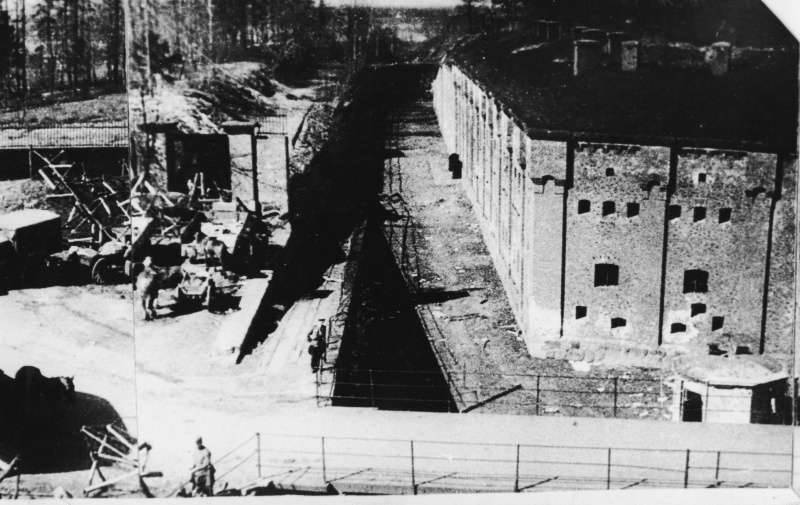
Königsberg is a separate page in the life of Gaivoronsky. Here he was wounded in the head.
- I felt that the bullet hit the helmet only when the blood began to fill the face. He took off his helmet, in it - a hole, and then a bullet falls out. Here, I still keep it, - the veteran took out a small convolution, - these are bullets and shrapnel, which fell into me.
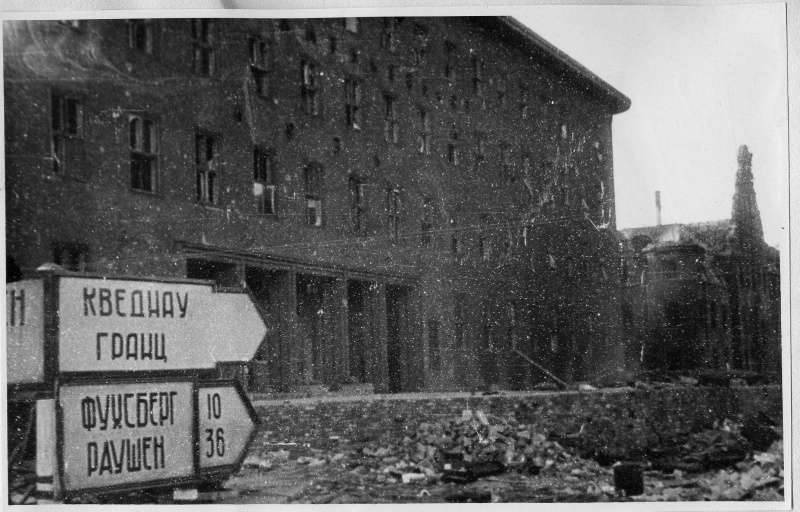
Victory Day Vladimir Stefanovich met in Germany, in East Prussia, but Berlin was still far away. He recalls that their group had just returned from departure, and the commander gathered everyone in the dining room. On the tables instead of the hundred grams put there were small bottles of vodka. The commander said “Victory!” Only the next morning, the fighters realized that Nazi Germany was defeated, and the war was over.
Now Vladimir Stefanovich Gaivoronsky, the last of Stalingrad, Belarus, Poland, Czechoslovakia, "rotated the Earth to the west", as Vysotsky sang, lives alone in an old house. A good-hearted neighbor helps him in everything, and the veteran himself awaits Victory Day every year - the most significant holiday for him.
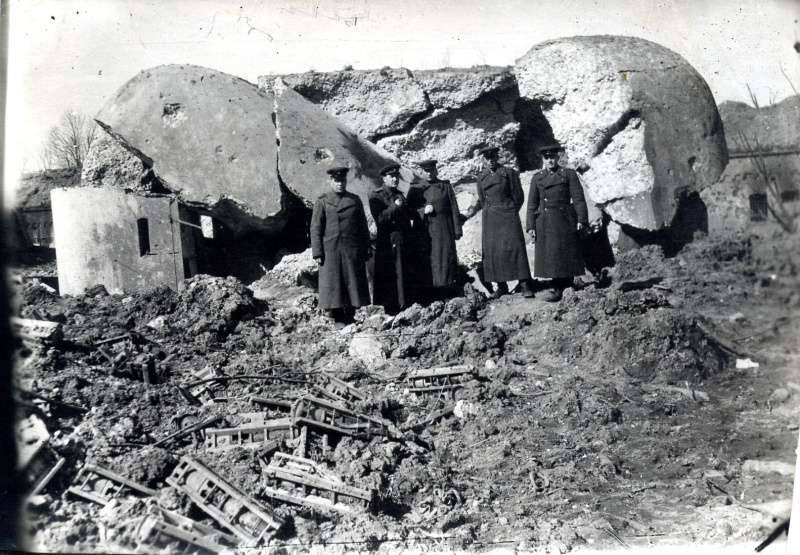
For three days, the teacher and his comrades took Kenigsbersky fortress
He spent his childhood in the farm of Shiroko-Bakholdin, Milyutinsky District. When he was six years old, the family moved to Verchobka’s picturesque farm. He had to go through a lot because those years were hard for the country. But Stepan never complained, steadfastly, like a man, endured all the hardships and deprivations. Decisiveness and firmness of character formed in him early. Another of its distinguishing features - perseverance. This is Stepan Fedorovich Nakonechnikov, a former teacher of the Verbobansk school.
Born in a simple peasant family, from a young age he dreamed of becoming a teacher. And he achieved his goal: in August, 1938, Stepan Fedorovich arrived at the elementary school of Verbochka farm, where he worked for forty years, devoting his whole life to raising children.
October 10, 1939 he was called up for active service and became a driver tank, and then graduated from the school of junior aviation specialists. The war was met by Stepan Fedorovich in the city of Orsha. He had a chance to fight in fierce defensive battles near Minsk, Smolensk, Dorogobuzh, Yelnya, Vyazma.
These were the most difficult days: the troops had to retreat, leaving their native land. Saw Stepan Fyodorovich destroyed cities and villages, heard the crying of children and mothers. The heart was breaking from the pain, but the hands squeezed even harder weapon. He believed and hoped for a quick victory, so he did not hide behind the backs of friends, did not sit in the trenches. Without thinking, he bravely went on the attack, rushed to the most dangerous places. He did not flinch even in front of the imminent danger of steel "tigers", took an anti-tank gun from a dead Cossack, and a few meters from the trench - under a German tank, and then opened fire on the fleeing enemies from his personal weapon.
Several times Tips was wounded, contused. But, having healed, he would certainly return to the line. As part of the Baltic Front took part in the storming of Koenigsberg. Stepan Fyodorovich recalled that when their regiment approached the city walls and temporarily defended, they constantly heard from the German side cheerful music, which was specifically turned on at full capacity. Also, the soldiers heard radio broadcasts with violent appeals and appeals, the meaning of which was reduced to one thing — they could not take such a protected fortress to the Bolshevik, they would break their teeth.
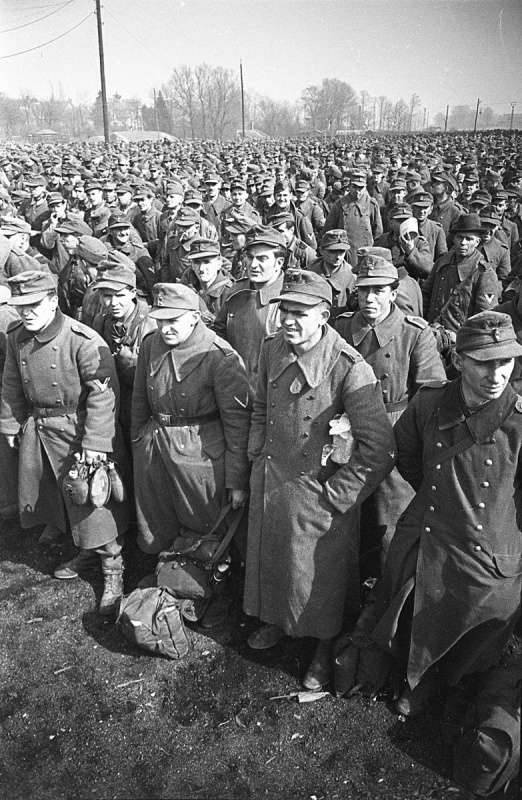
But the fascist braggers were wrong. The fortress was taken in a matter of days: the assault directly on Koenigsberg began on the sixth of April, and by the evening of the ninth the “absolutely impregnable bastion of the German spirit” had fallen. When the soldiers marched through the city, they saw how on some public buildings were written calls to fight as the Russians fought in Stalingrad. Only these appeals did not help the Germans defend their ancient fortress, which was taken within three days.
And the soldiers saw a truly amazing call-comparison hanging on the streets: the Germans took Sevastopol as 250 days, and Königsberg would never be taken.
It is surprising that the German ideologists cited as an example samples of Russian courage and based on them their propaganda.
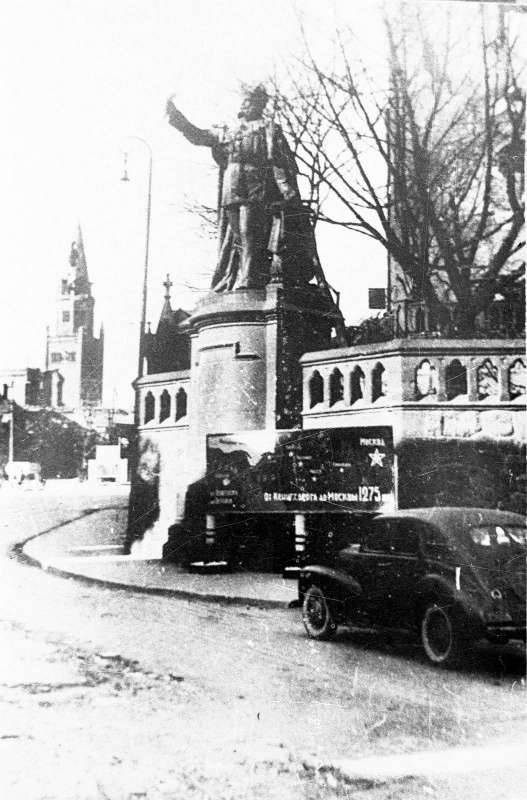
Until his death, the village teacher carefully kept the medal “For the capture of Koenigsberg” and a photograph of the storming of the city, where he happened to celebrate Victory Day, to which, along with everyone, he walked long 1418 days and nights. Eleven medals and the Order of the Red Star are his awards for military affairs. But are they commensurate with life?
1 November 1945 of the year returned Stepan Nakonechnikov to his own Verbochki, and a week later he went to work, again stood at the blackboard and taught the children the tricks of literacy. Curious boys often overpowered him with questions, how and where he fought, and he always answered: “There’s nothing to tell about myself, but next to me ...” And he recalled his fellow soldiers for a long time.
In 1978, Stepan Fyodorovich retired, but was a frequent and welcome guest at school, helping children to get to know history native land. He did not have to meet the 40 anniversary of the Great Victory, he died on the eve of May 8 1982.
Burning projectile in the hands of
Nikolai Nikolaevich Asanov - 92 of the year. His “path-front track” began in the 1943 year, when he was mobilized and sent to the regimental school, where the junior command staff was trained. Having received there the specialization of the artilleryman and the rank of senior sergeant, Nikolai was sent to a military unit in Ukraine. Our fellow countryman received the baptism of fire on the first day at the front. His battery was supposed to cross the pontoons to the other side of the Seversky Donets and gain a foothold there.
“When I found myself on the other side,” recalls Nikolai Nikolayevich, “I was simply taken aback. All the land was covered with the bodies of the dead. They say that you can get used to everything, but it seems to me that it is impossible to get used to death. No sooner had the gunners recovered from what he saw, as the enemy aircraft flew. A squadron behind the squadron German aces in squares bombed the territory growing near the coast of the forest and the surrounding area. After the Nazis flew away, they began to count the losses. Three dead, wounded, only two horses left, so the guns had to be carried by hand.
Nevertheless, strengthened, occupied the defense, took the fight.
- Suddenly, I noticed that an explosion occurred next to the ammunition - the boxes caught fire. There was only one thought in my head: there were very few shells, they should be protected, they should not be allowed to explode. I ran to the burning box, pulled all the ammunition out of it, and threw the box far to the side.
The commander put his arm around him and said: “How were you not afraid that the projectile would explode in your hands? You saved our entire battery! ”For this courageous act, he was presented with an award and received his first medal,“ For Courage ”.
To the forest not only for mushrooms
When storming the fortifications of Koenigsberg in April 1945, Alexey Maksimovich Terekhov was wounded easily in the leg and in the stomach. A bullet from a German rifle stuck under the skin at the end of it (through 20, the bullet rolled out when he played with his grandson). The front-line soldiers reluctantly went to the rear hospital with minor injuries, because after recovery they no longer fell into their units, but went to the replenishment to other units. Starshina Alexey Maksimovich did the same: the course of treatment took place in his sanitary unit.
Once with the same wounded they decided to get mushrooms for a variety of soldier food. After the defeat of the German grouping in the forests remained scattered groups of Germans who did not want to surrender. Everybody knew this, so they took a weapon with them: comrade - a pistol, and Alexey Maksimovich - a hand crutch on which he rested, but when the handle of the crutch was turned, the bayonet was removed. So they went for mushrooms.
At first they walked together, but then they parted, calling each other, they got carried away and no longer heard the call signs. There were a lot of mushrooms at that time. The basket was already full when Alexey Maksimovich smelled smoke. Two large Germans in the form of an SS were sitting with their backs to a sergeant behind a thick spruce by the fire. On the team "Hyundai hoh!" They did not even move. I repeated the command - the same thing, but the German on the right hand slowly crawled into his trouser pocket. The decision was made instantly, took out the bayonet and plunged into the right shoulder.
The wounded man could not get the Walter by hand - the weapon passed to the foreman. A command followed to rise and follow to the location of the unit. The Germans did not want to execute the command, they had to threaten with a pistol.
The German wounded man demanded a dressing, but, as the foreman said, he feared that more enemies might appear, so he did not allow it. The second was unarmed, did not attack. With them were two large black suitcases, and the foreman forced a healthy German to carry them, then the hands of the German were occupied. Led to the headquarters of the unit. After interrogation of the prisoners, it turned out that they were two employees of the division headquarters, they had valuable topographic maps in their suitcases.
Information